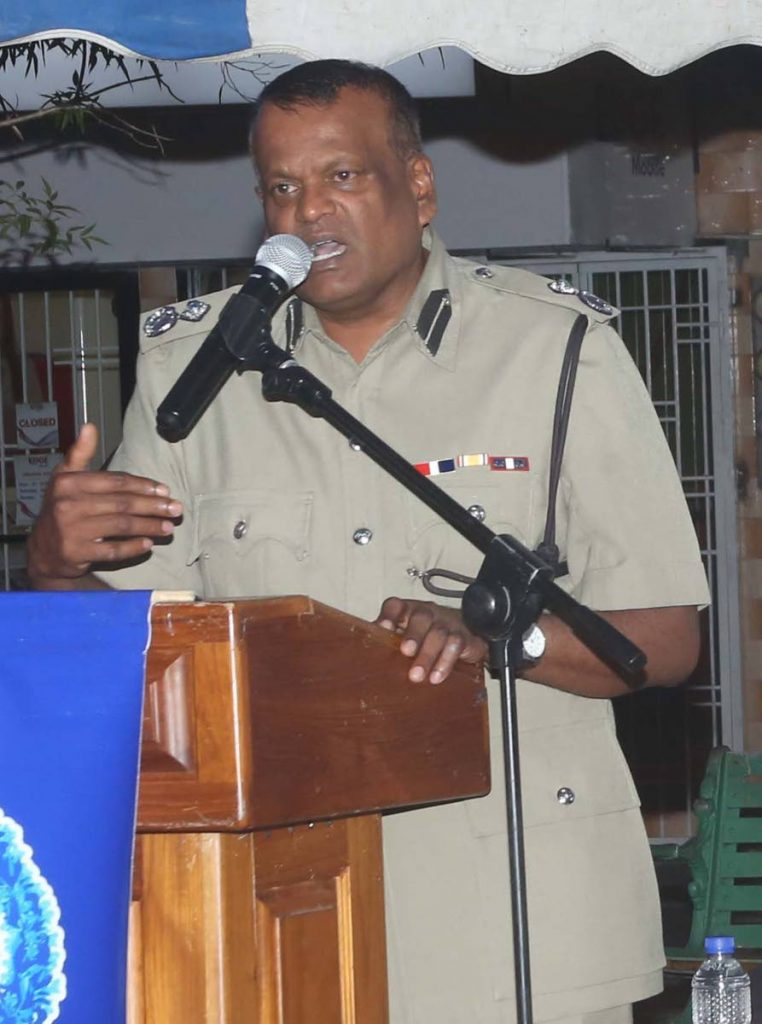Carmona’s delay on 5th PSC member affects process, CoP in doubt

President Anthony Carmona’s failure to appoint a fifth member to the Police Service Commission (PSC), in keeping with the Constitution, may have contributed to the ambiguity that now surrounds the commission’s selection of Deputy Police Commissioner (Operations) Deodath Dulalchan as the country’s next Police Commissioner.
As such, Dulalchan’s selection could be deemed unconstitutional, says criminologist and former PSC chairman Prof Ramesh Deosaran as he weighed in on the commission’s choice against the backdrop of reports there was a split over the selection.
“It will shift the debate from just the appointment of the man to the mechanics of the appointment and I am sure when it comes to Parliament, there will be challenges on these grounds,” he said yesterday.
“It appears that the commission is not constitutionally constituted and if you have only four members, that does not give you the right to have a quorum. A quorum is a derivative of a full body of commissioners, which we don’t have.
“So, you can’t just say you have four and go ahead. You have to have five, a areal commission, then a quorum could be a derivative of the full body of commissioners, which is five.”
Sunday Newsday understands that of the four people on the existing commission, two, including chairman Maria Therese Gomes, supported Dulalchan for the post of top cop, while the other two did not.
As chairman, Gomes, outside of her substantive vote, also gave a casting vote, which cemented Dulalchan as the commission’s choice.
But yesterday, Deosaran said the appointment of a fifth member to the commission could have changed the outcome of the selection process.
“There has been a vacancy for a long time now, about a year. And this affirms the point that of the vacancy was filled, the decision would have been clearer, less ambiguous,” he said.
“So, the lack of filling this vacancy by the President has helped create a lot of ambiguity in the deliberations by having the chairman vote twice on a four-member commission.”
Deosaran said the issue was an extremely serious one, with potentially far-reaching implications.
“I have checked the legal aspect to it and the Constitution says a commission constitutes five members. So, if there are not five members, then doubt arises as to the validity of these decisions.
“This is different from having a five-member commission with one absent due to sickness but this is not the case here and that is a serious point.”
Deosaran, who recently chaired the Police Manpower Audit Committee, further described the 2-2 split on the commission as “a puzzling situation.”
“If this is the case, that there are only four members on the Police Service Commission, with one member apparently missing for some time now, the question arises as to why the President did not fill that vacancy as expeditiously as is apparently warranted.
“That point has to be made - that such vacancies in high level commissions should be expeditiously filled, whether it is the Integrity Commission, Public Service Commission or the Police Service Commission. There are instances where the period to fill those vacancies have been left for an exceedingly unwarranted length of time.”
Deosaran said if there are four and not five members, as the Constitution requires, that vacancy has contributed to a less efficient process. “The chairman has put two votes whereas if the vacancy were properly filled, it would have been a tidier process for her to just use her casting vote.”
Regarding the view that Dulalchan should not have been selected for the post of Police Commissioner after having applied only for that of Deputy Police Commissioner, Deosaran said: “If anybody, generally speaking, decides during an interview when asked if he wants a related position and he said, yes, I think in those circumstances, once the criteria has been met, I think it is also quite legitimate to consider such persons for the appointment.”
He said the decision to move forward with Dulalchan now rests with the House of Representatives.
‘Process totally rigged’
A source close to the nomination exercise yesterday alleged the process was “totally rigged.”
The source, speaking on the condition of strict anonymity, said although auditing firm KPMG was contracted to do an analysis of the candidates based on a points system, there was alleged interference in the process.
“The law states that a firm is to be selected to do a comprehensive analysis to select persons on points,” the source said.
“KPMG had listings with merit points for CV, medical, operational reports and a mock, media conference, a number of different things.
“When those points came, all the PSC was supposed to do was compile the points, set up the merit list and give it to the President.”
The source claimed, however, members of the PSC usurped their authority, bypassed the laws and ignored KPMG’s point system.
“They decided to have their own personal interview to select somebody who was very low on the point system,” the source alleged.
The source further claimed that two of the four PSC members said the situation was tantamount to “madness.”
“All they (PSC members) were supposed to do is look at the list on the point system and the person who topped the list on the point system is supposed to be the person selected.”
The source also described as “total stupidity” the fact that Dulalchan was selected for the position of Police Commissioner, a post for which he never applied.
There were also questions about Gomes’ term which ends today, and the status of the PSC. President House did not respond to calls from Sunday Newsday yesterday.

Comments
"Carmona’s delay on 5th PSC member affects process, CoP in doubt"